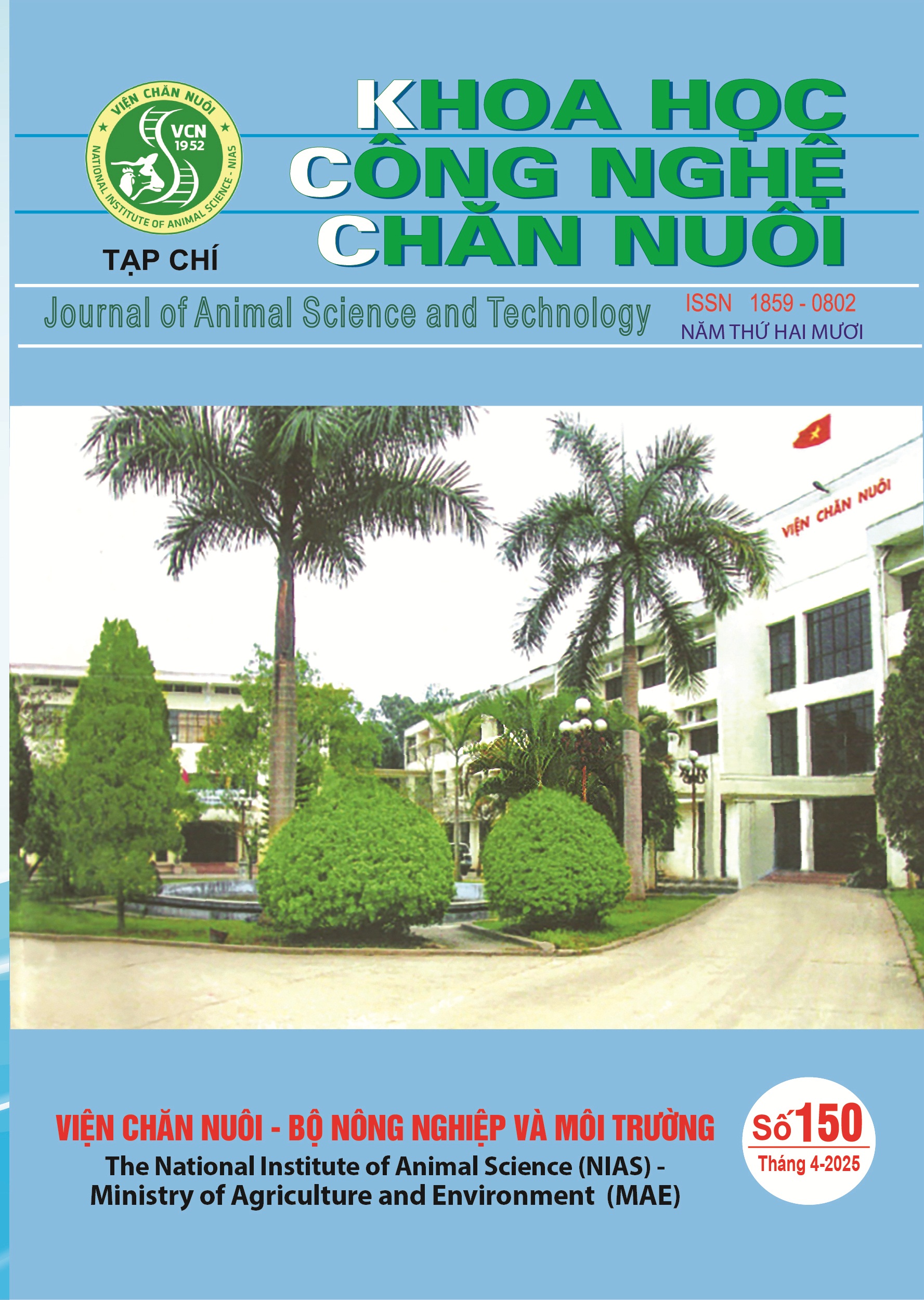Evaluation of the effectiveness of some biological and chemical additives on preservation of total mixration (TMR) for cattle after mixing
The study aimed to evaluate the impact of chemical and biological additives on quality and prolongation of storage time of TMR diets for cattle after mixing. TMR experimental diets included king grass, whole corn silages, dried rice straws, cassava residues, wheat brans, soybean meal, cassava meal, brewery residues, minerals and vitamins. The TMR diet was formulated according to recommendation of NRC (2016) to meet the nutrient requirements BBB x Zebu cattle from 19-21 months of age. TMR diets were divided into 4 treatments (three bags/treatment, 25kg/bag): (ĐC) no additives (control); (TN1) TMR + potassium sorbate (1g/kg As-fed) (PS); (TN2) TMR + Sodium benzoate (1g/1kg As-fed) (SB); (TN3) TMR + a mixture of propionic acid (0.3%) and L. plantarum inoculant (1x106cfu/ml) (PL). DM, CP, NH3-N, organic acid content, pH and microbial counts were evaluated at days 1, 3, 5, 7, 9, 12, 15 of preservation. The results showed that using preservatives helps to prolong the storage and usage time of TMR to 15 days in winter. However, supplementing of propionic acid and L. plantarum into TMR diets (PL) in the hot season showed the best effect in maintaining stably TMR’s quality and extending its storage time to 9 days compared to other treatments. This result reflected by low pH, NH3-N, aerobic bacteria, and yeast levels, as well as the high organic acid content. Based on this result, PL formula would be a more effective than SB and PS formulas in preserving TMR during hot weather.

